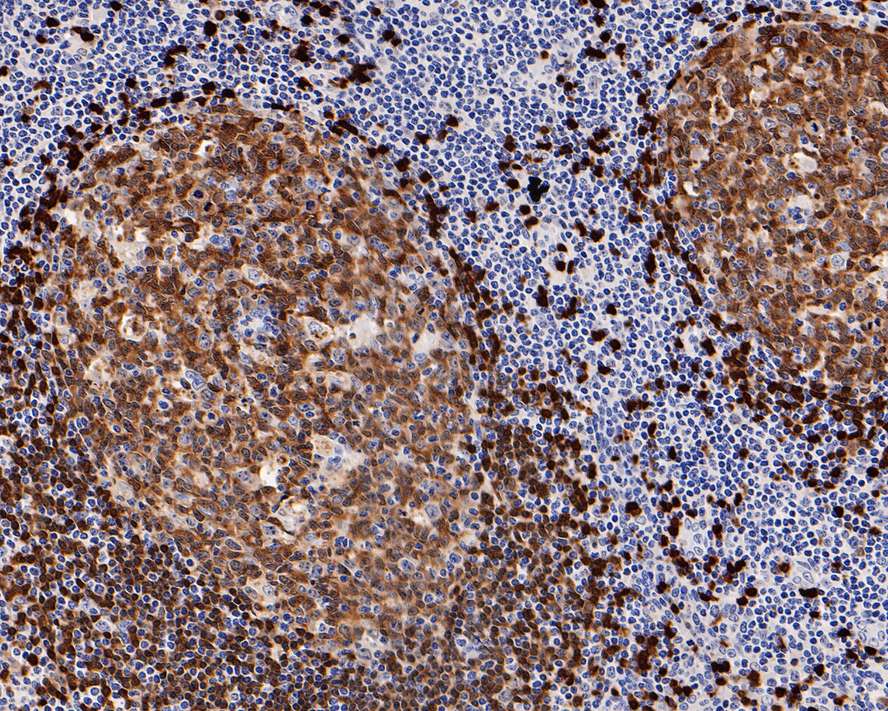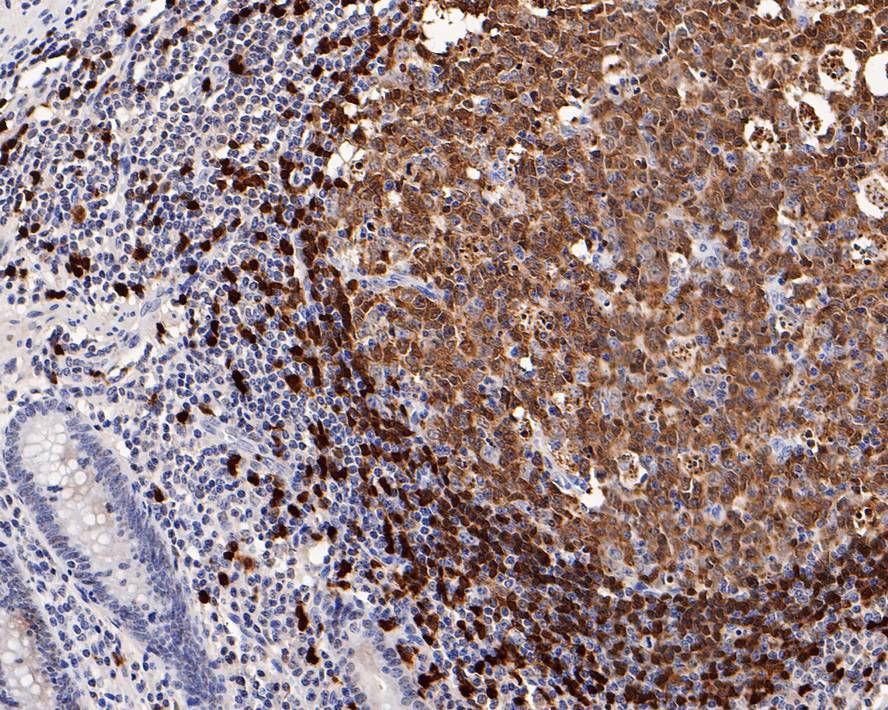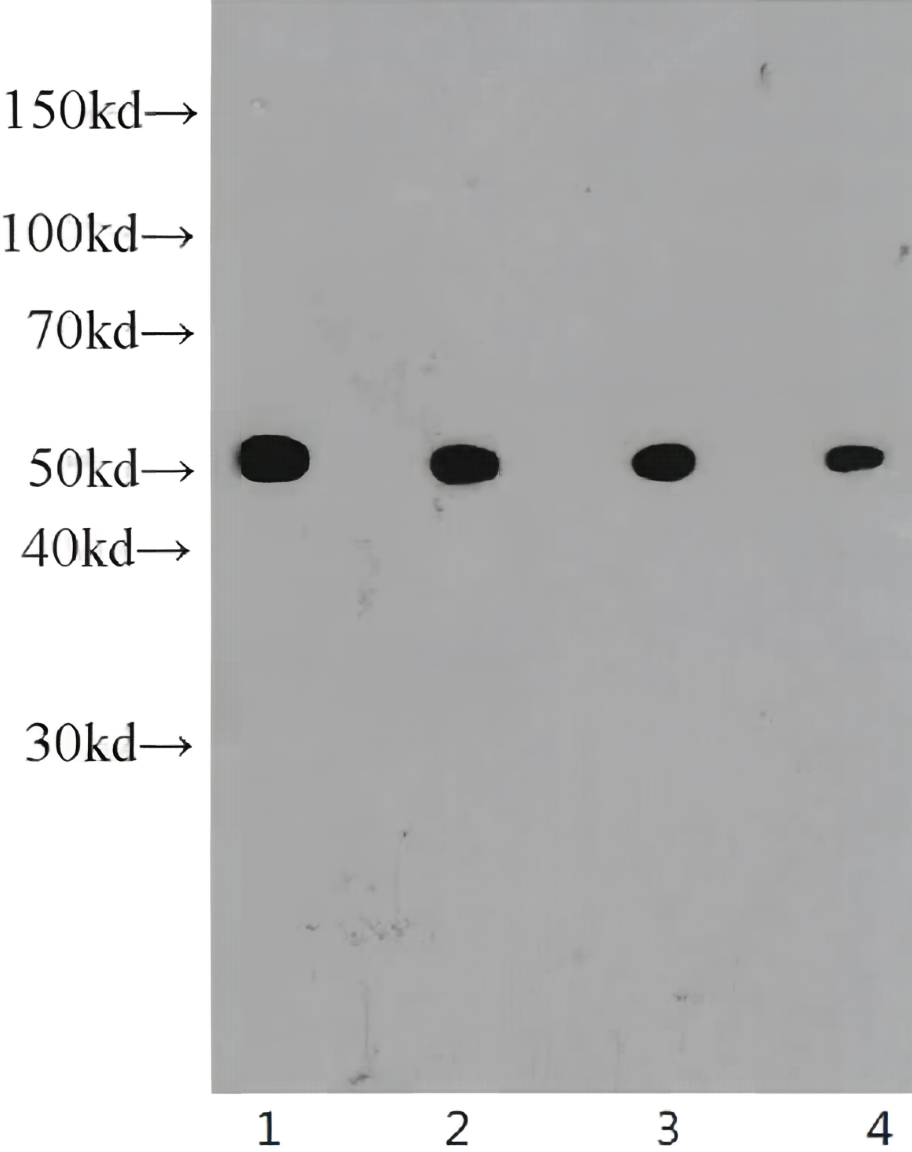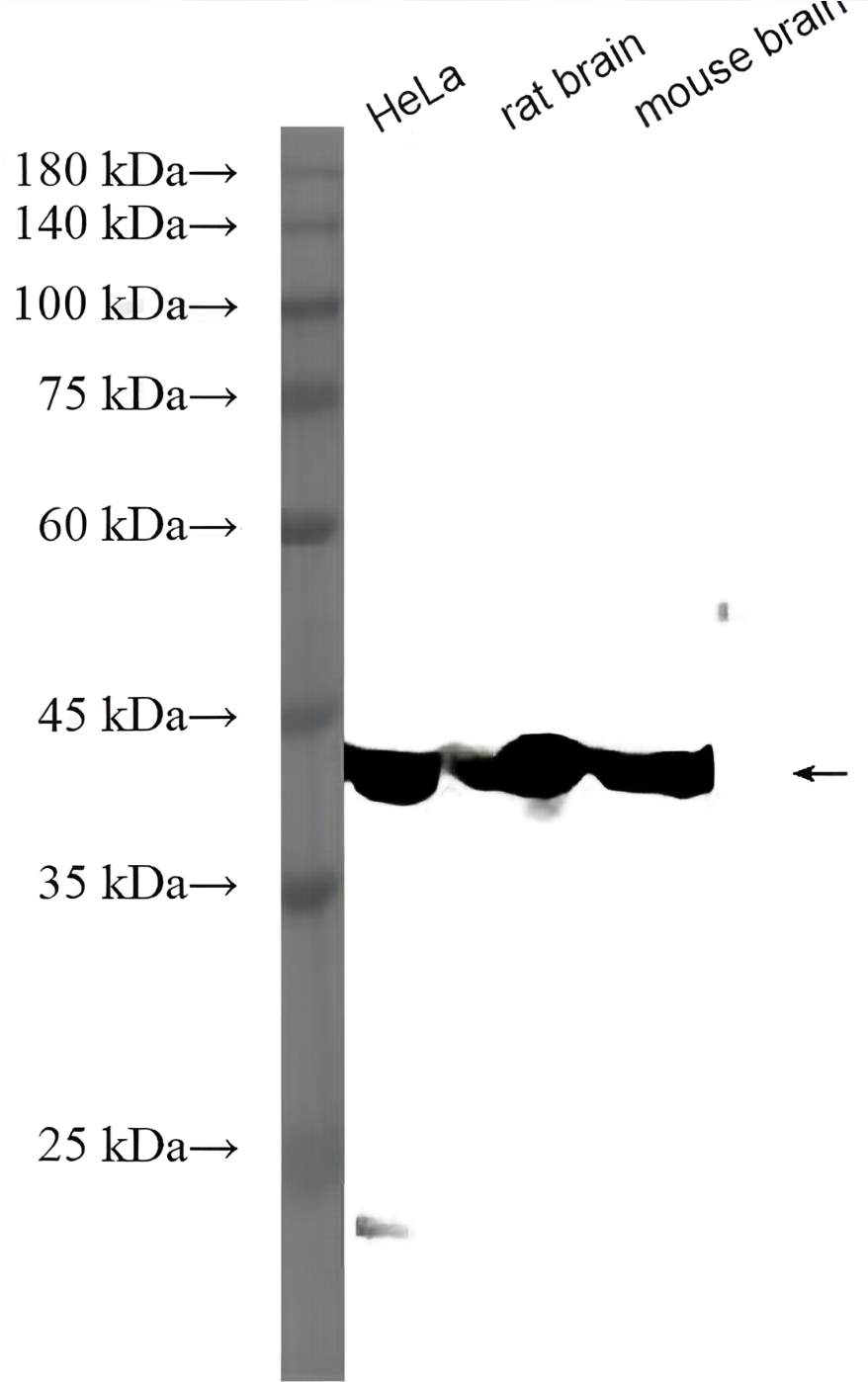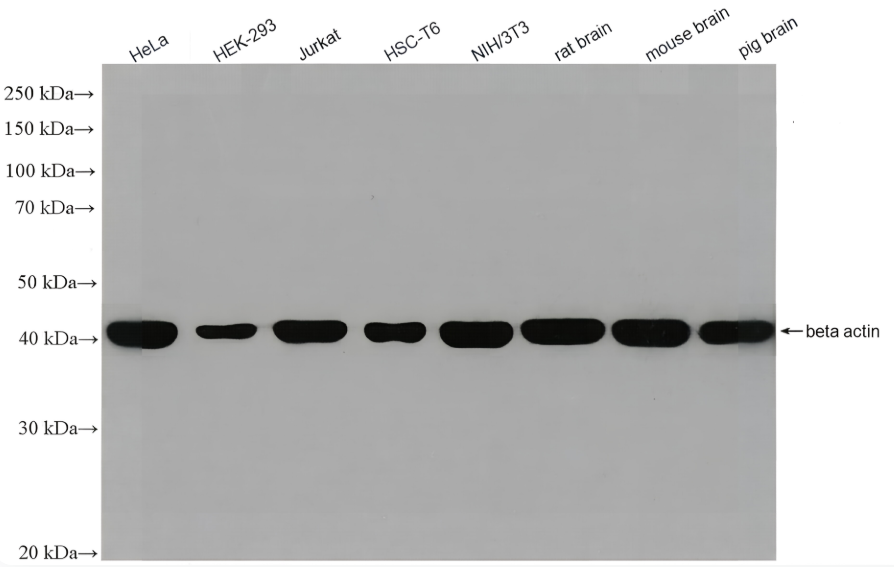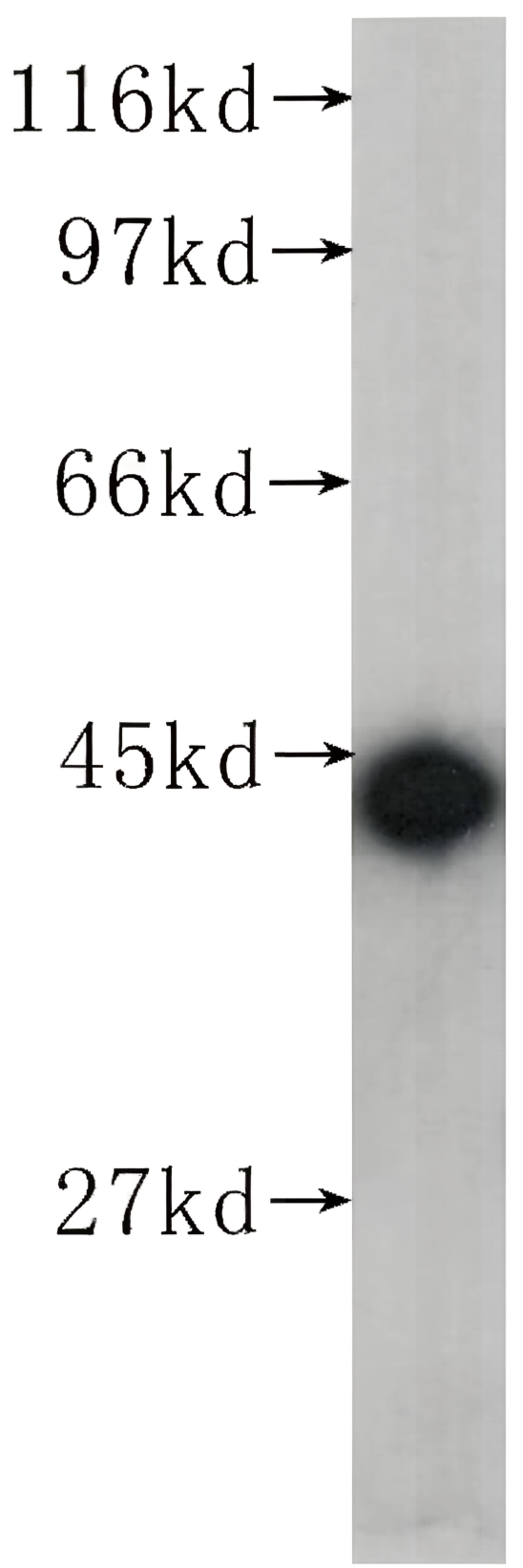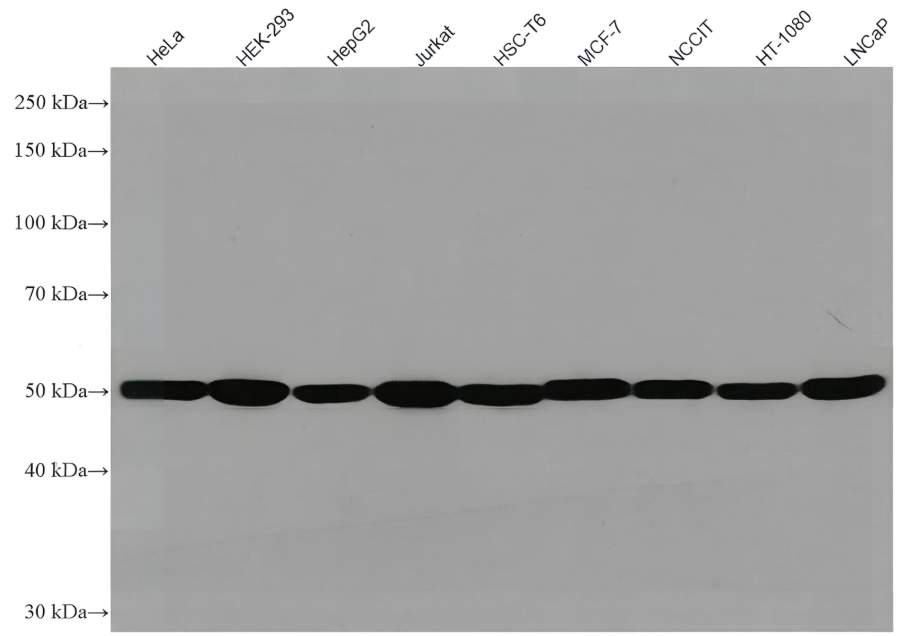Tcl1 Rabbit Monoclonal Antibody(ARA857)
CAT.NO. : ARA6683
RMB Please choose
RMB Please choose
*产品价格可能会有所调整,请以品牌方官网实时更新的价格为准,以确保准确性。
Background
T-cell leukemia/lymphoma protein 1A (TCL1) is a member of the TCL1 family and enhances the phosphorylation and activation of AKT1, AKT2 and AKT3. TCL1 promotes the nuclear translocation of AKT1 and enhances cell proliferation, stabilizes mitochondrial membrane potential and promotes cell survival. The expression of TCL1 is restricted to lymphoid cells. It is expressed early in lymphocyte differentiation. Strong expression of TCL1 is found in a subset of mantle zone B lymphocytes and is expressed to a lesser extent by follicle center cells. In B-cell neoplasia, TCL1 immunoreactivity is found in the majority of B-cell lymphomas including lymphoblastic lymphoma, chronic lymphocytic leukemia, mantle cell lymphoma, follicular lymphoma, Burkitt lymphoma, diffuse large B-cell lymphoma (60%), and primary cutaneous B-cell lymphoma (55%). The expression of the TCL1 gene characterizes low-grade B-cell lymphomas.
Application
|
Application |
Dilution Ratio |
|
IHC-P |
1:200-1:2,000 |
Overview
|
Antibody Type |
Recombinant Rabbit monoclonal Antibody |
|
Immunogen |
Recombinant protein within human Tcl1 aa 1 - 114 |
|
Species Reactivity |
Human |
|
Molecular Weight |
Predicted band size: 13 kDa |
|
Positive Control |
Daudi cell lysate, Raji cell lysate, human tonsil tissue, human appendix tissue, PC-3, Daudi |
|
Conjugation |
unconjugated |
|
RRID |
AB_3072327 |
|
Form |
Liquid |
|
Concentration |
1ug/ul |
|
Storage Buffer |
PBS (pH7.4), 0.1% BSA, 40% Glycerol. Preservative: 0.05% Sodium Azide |
|
Isotype |
IgG |
|
Purification Method |
Protein A affinity purified |
Data
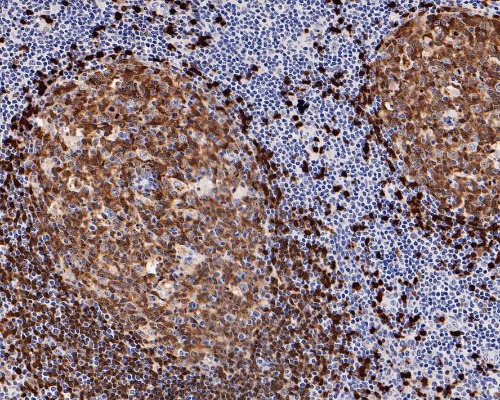
Immunohistochemical analysis of paraffin-embedded human tonsil tissue with Tcl1 Rabbit Monoclonal Antibody(ARA857).
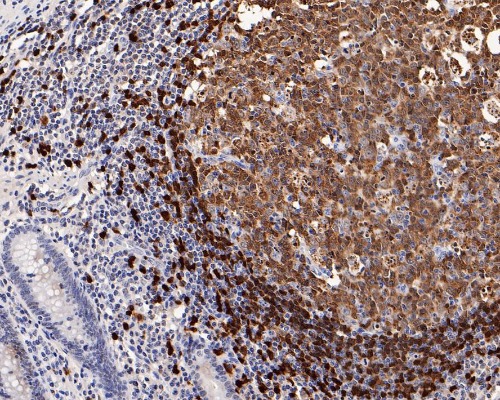
Immunohistochemical analysis of paraffin-embedded human appendix tissue with Tcl1 Rabbit Monoclonal Antibody(ARA857).
Storage
Store at 4°C short term. For long term storage, store at -20°C, avoiding freeze/thaw cycles.
Research Use Only
For Research Use Only. Not for use in diagnostic procedures.
 New Products
New Products




